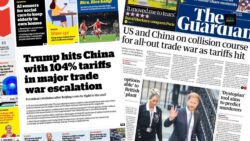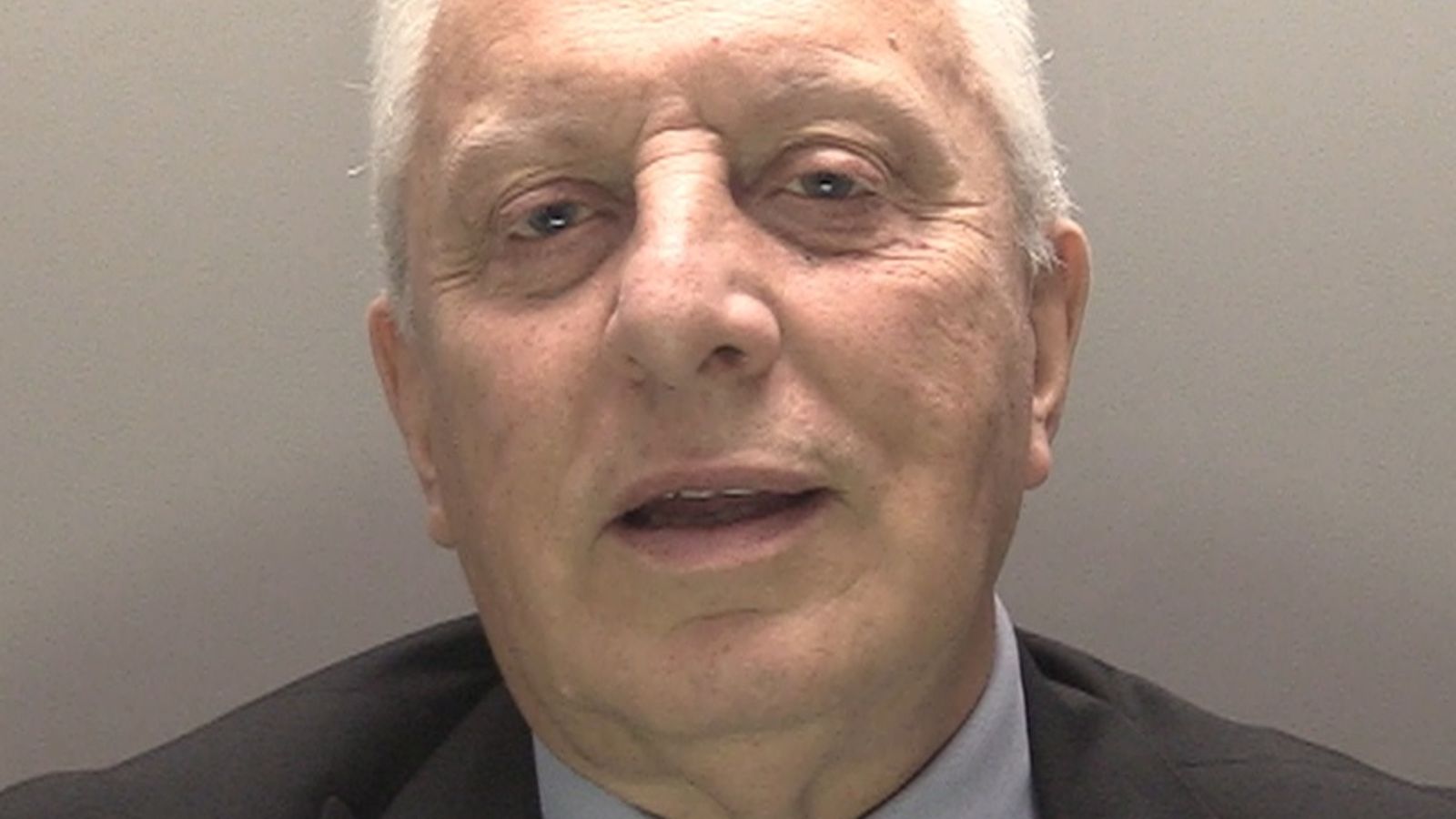An all-out trade war starts as China hit with 104% levies, and fears of a global recession dominate the morning conversations. Wednesday’s newspaper headlines reflect the fears before the tariffs started (they’ve since come into effect).
Last week, Donald Trump announced a baseline rate of 10% tariffs on most countries, with more extreme tariffs coming into effect today for what the US president said were the ‘worst offenders’ – around 60 countries, including China, have been hit with a 104% tariff.
The additional tariffs on China started after Beijing refused to meet Trump’s deadline to withdraw its retaliatory levies on the US – but China has vowed it won’t back down and instead will fight to the very end.
The newspapers went to print before the tariffs came into effect, and all eyes will now be on the global stock markets as London’s FTSE 100 index opens 2.5% down, and major Asian markets have also extended their losses.
The US stock markets will open at 14:30 BST.
All-out trade war starts as China hit with 104% levies
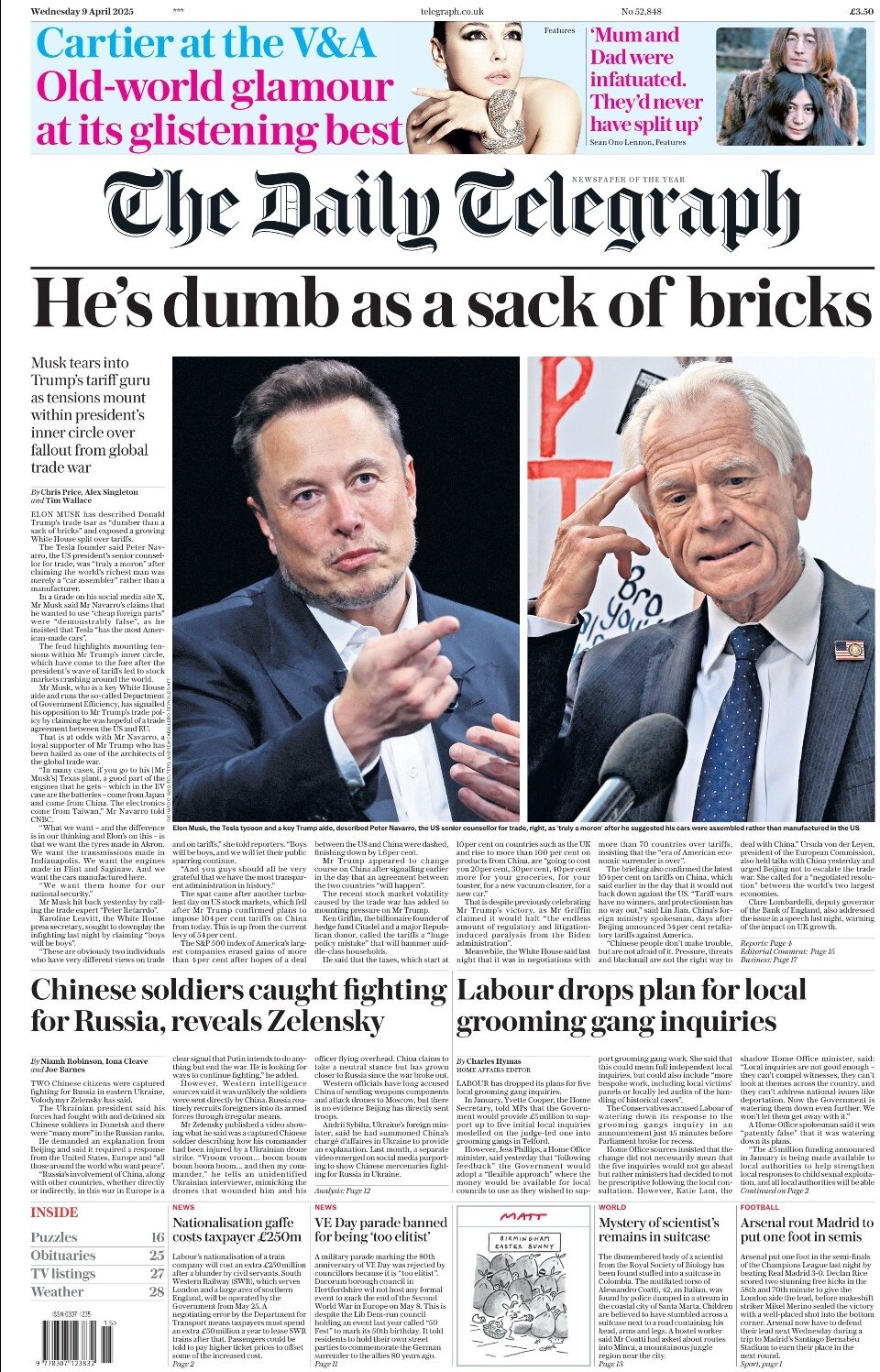
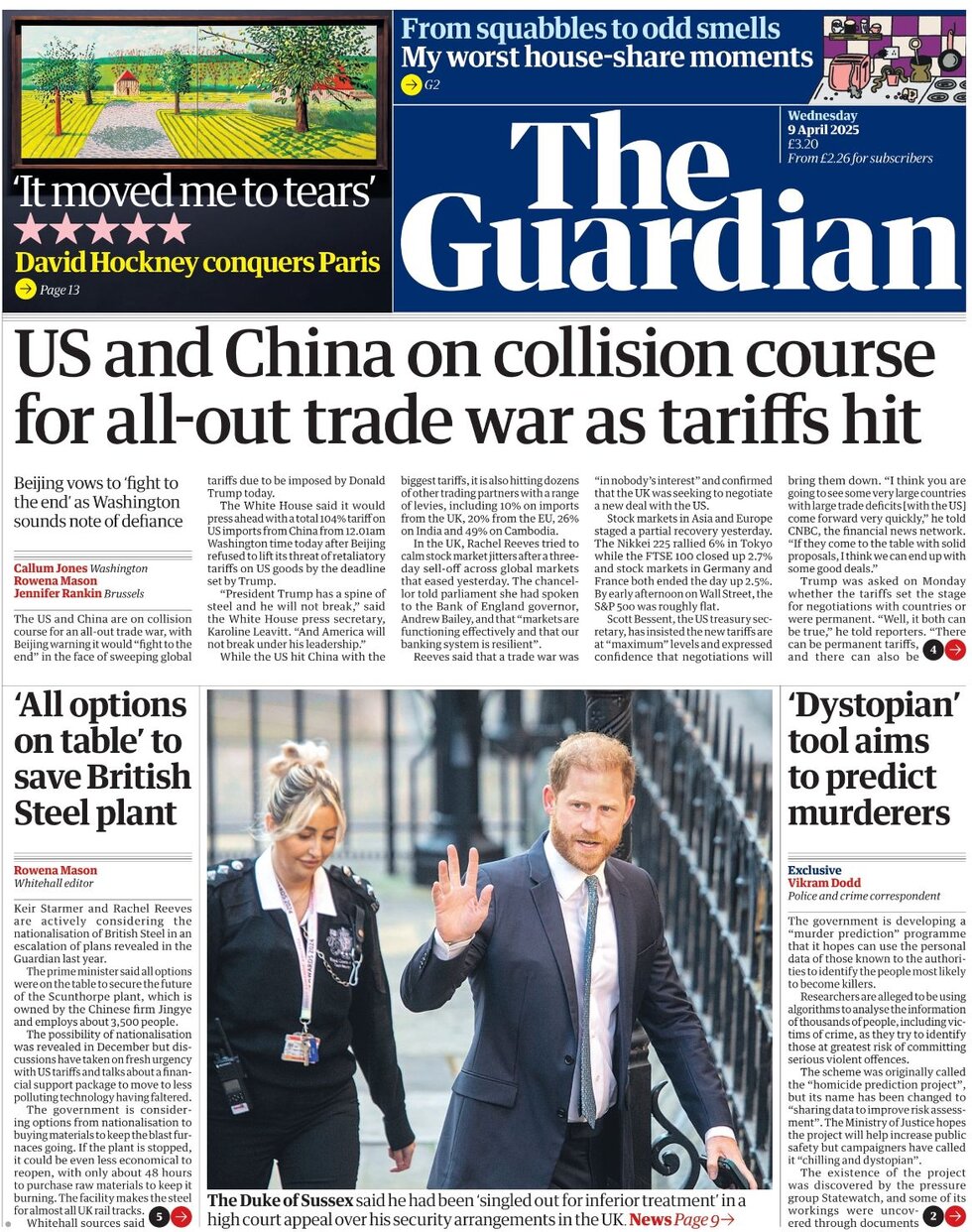
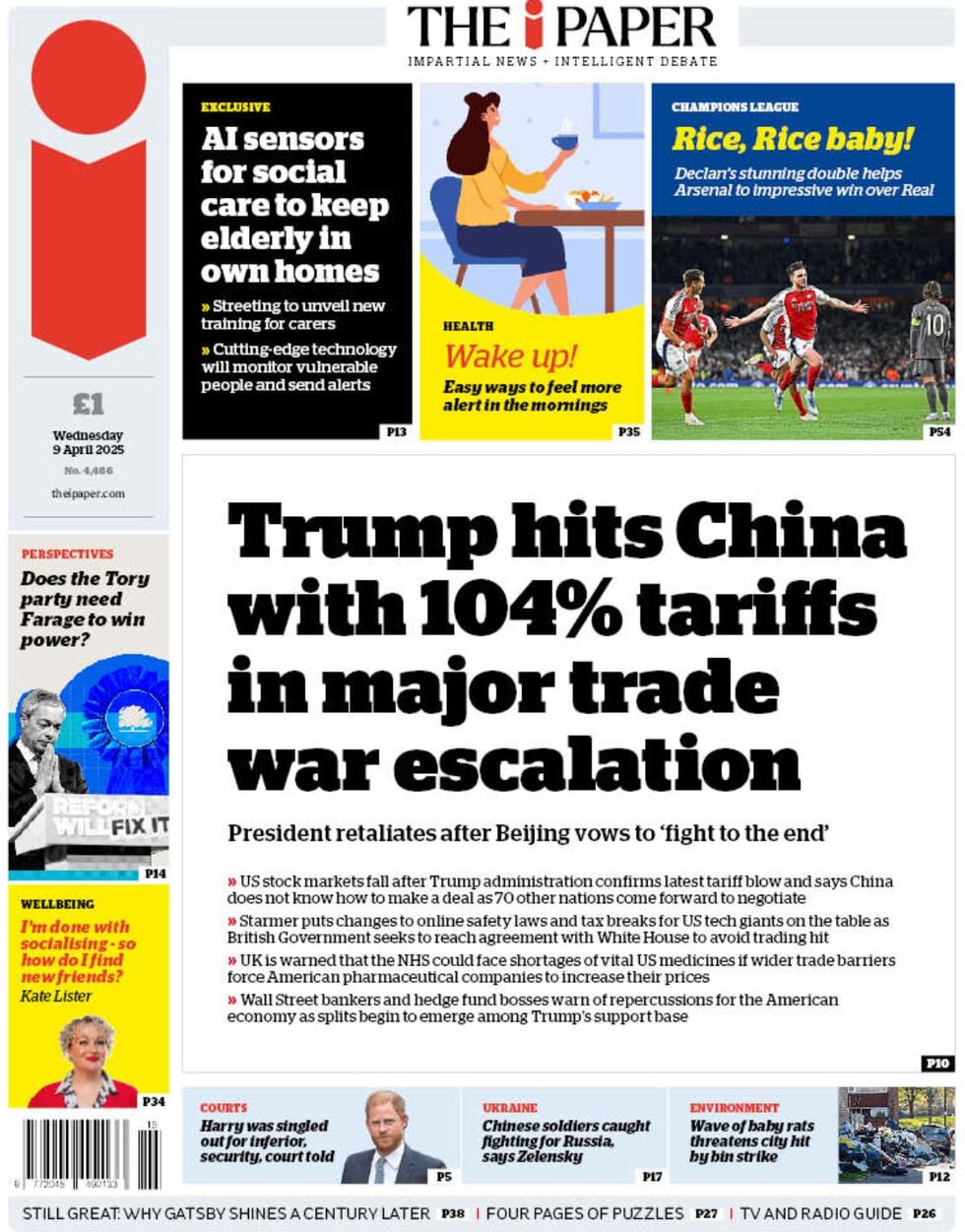
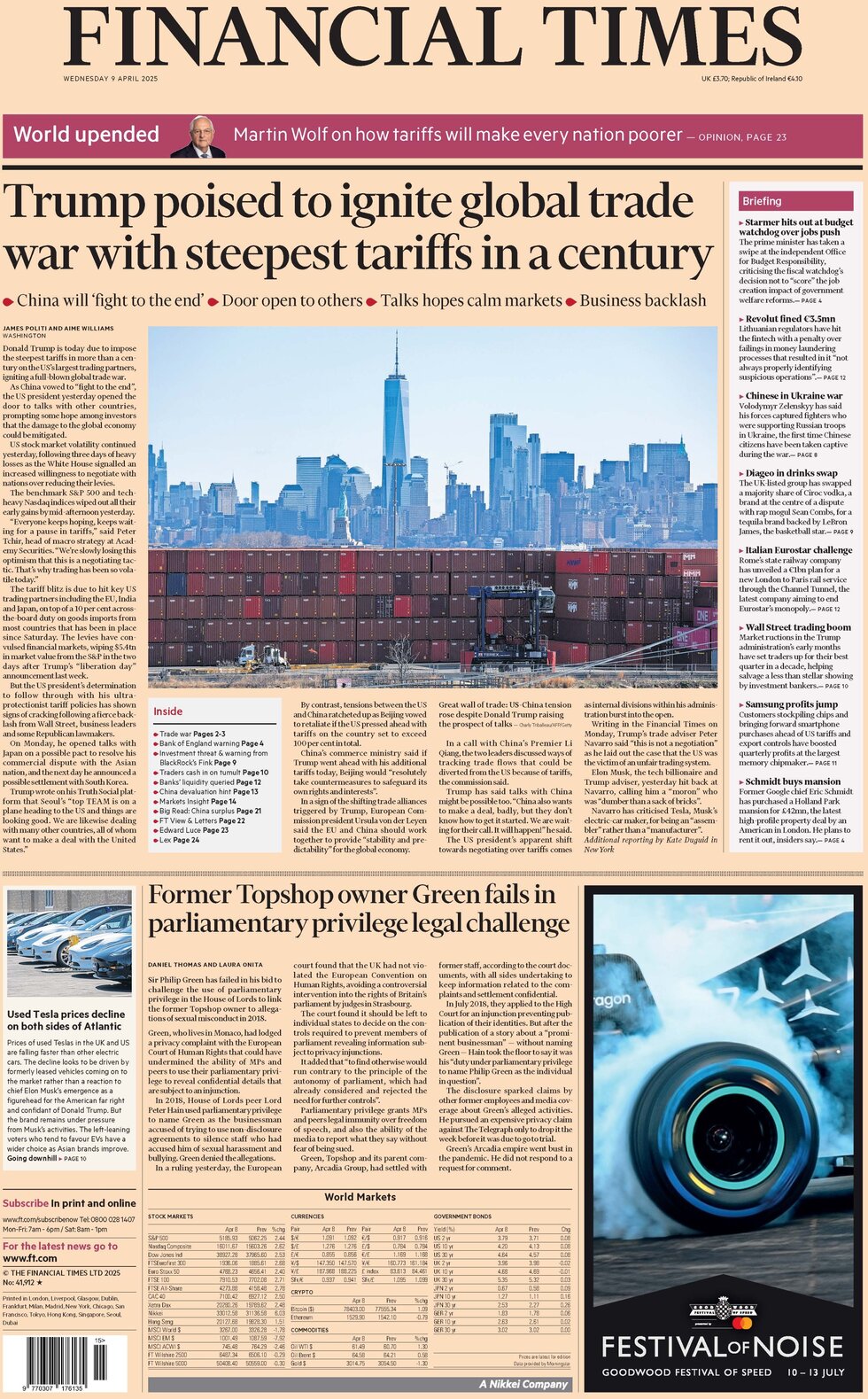
US and China on collision course for all-out trade war as tariffs hit
Explainer: The headline uses sensational language, particularly with phrases like “collision course” and “all-out trade war,” which imply inevitability and escalation. This framing heightens drama and may lead readers to perceive the situation as more severe or confrontational than it might be. It is not entirely neutral, as it leans towards alarmism rather than a balanced presentation of the facts.
- The Guardian reports on Trump’s tariff turbulence, saying China and the US are on a “collision course for all-out trade war” as tariffs set to come into effect at midnight in the US.
Trump poised to ignite global trade war with steepest tariffs in a century
Explainer: The headline is clearly sensationalist. Words like “ignite” and “global trade war” evoke a dramatic and destructive scenario, while “steepest tariffs in a century” adds historical weight to the claim. This language is designed to provoke strong reactions and suggests a catastrophic outcome rather than neutrally presenting policy developments.
- The Financial Times says Trump is “poised to ignite global trade war with steepest tariffs in a century”. As the clock ticks closer to the reciprocal tariffs, Trump is facing backlash from businesses.
Trump hits China with 104% tariffs in major trade war escalation
Explainer: The headline uses forceful language, particularly the word “hits,” which implies aggression. The phrase “major trade war escalation” adds a sense of intensifying conflict, contributing to a dramatic tone. While it states a fact—the imposition of high tariffs—it frames it in a way that emphasises confrontation, making the headline more sensational than neutral.
- The i says if China is hit with a 104% tariff, it will mark a “major trade war escalation” as Beijing has already said it won’t back down and will “fight to the end.”
He’s dumb as a sack of bricks – Musk tears into Trump’s tariff guru as tensions mount within president’s inner circle over fallout from global trade war
Explainer: The headline is highly sensational and biased. It highlights a personal insult with emotive, inflammatory language (“dumb as a sack of bricks” and “tears into”) to attract attention. This not only injects drama but also frames the subject negatively, showing a clear bias against Trump’s adviser and potentially Trump’s trade policies. It prioritises conflict and controversy over balanced reporting.
- The Daily Telegraph leads with a public row between Elon Musk and Trump’s trade adviser, Peter Navarro. Musk has branded Navarro a “moron” and “dumber than a stack of bricks” while Navarro has told Musk to “stay in his Doge lane,” the paper adds.

